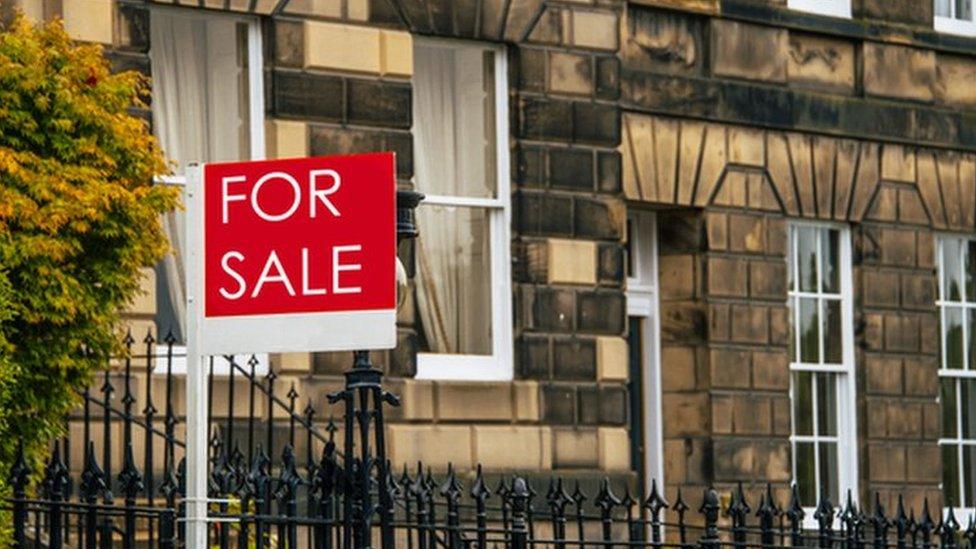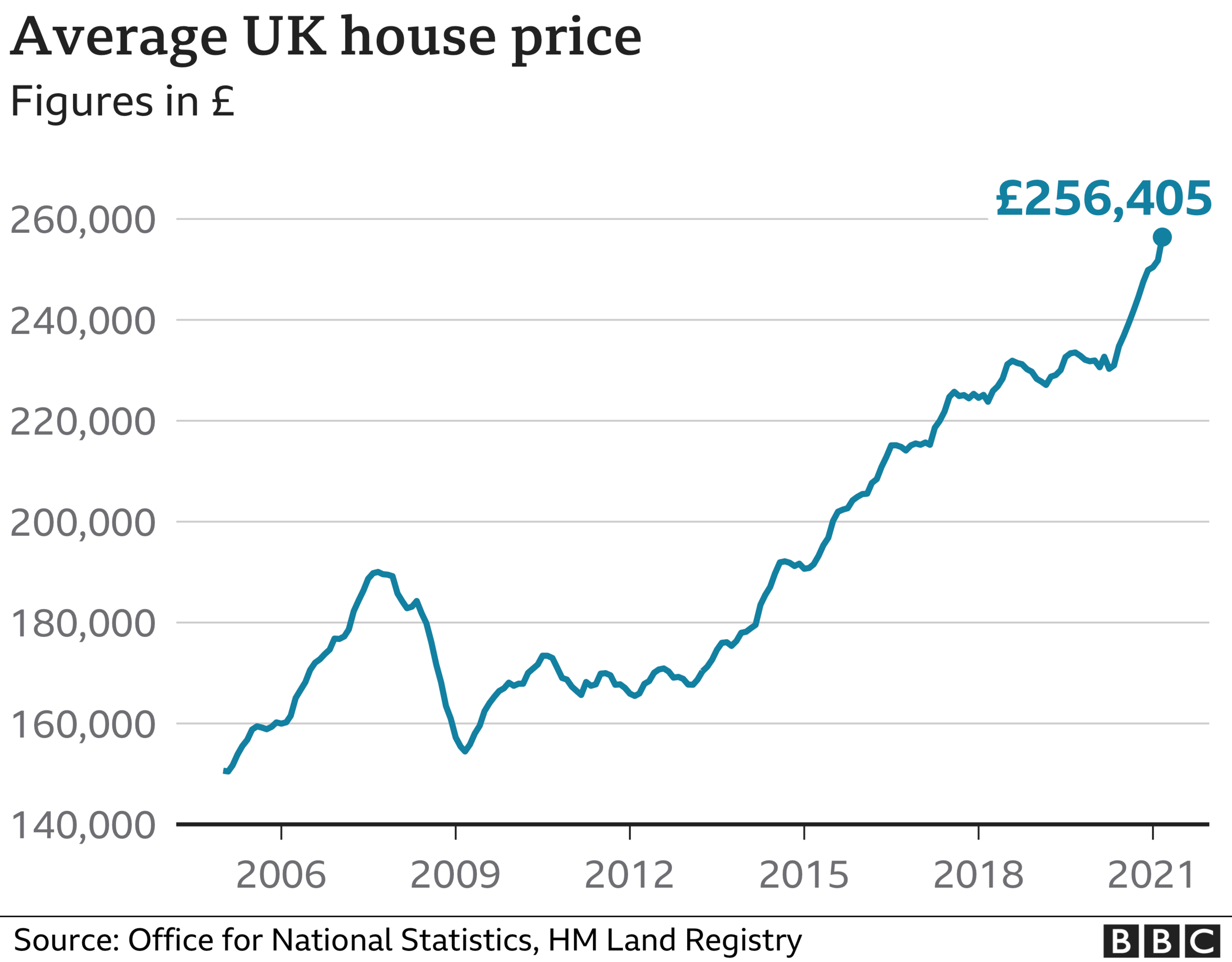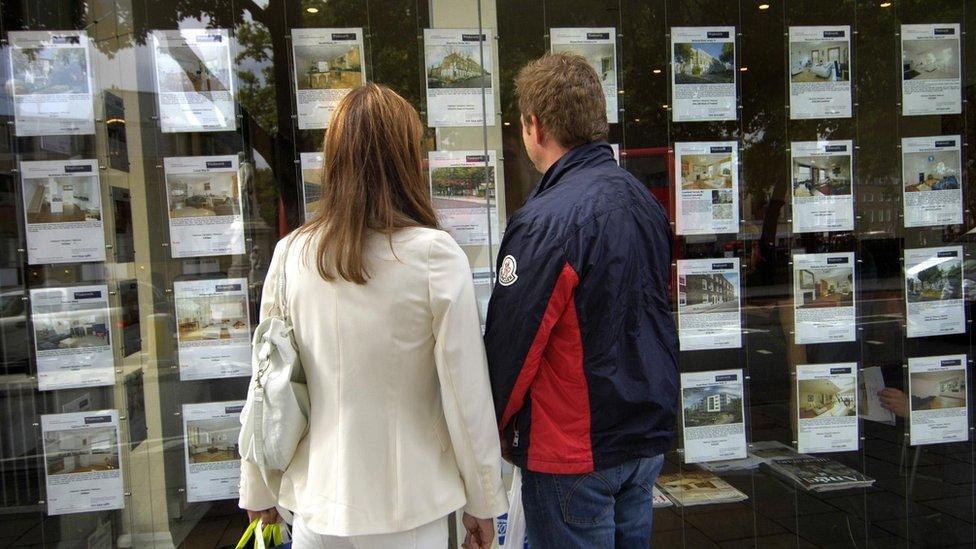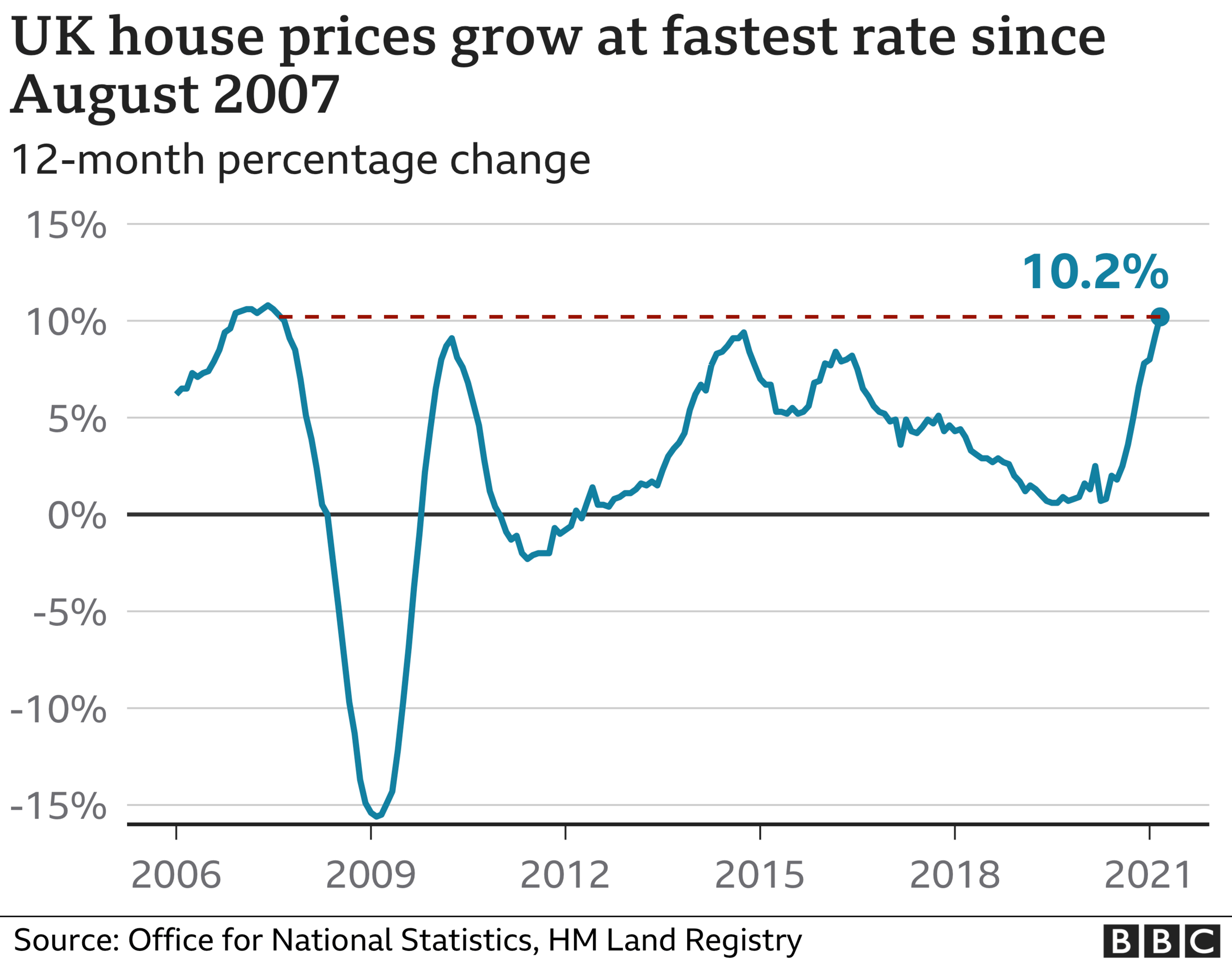House prices climb at highest rate since before credit crunch
- Published
- comments

Average UK house prices soared by 10.2% in the year to March, the highest annual growth rate for 14 years, according to official figures.
The Office for National Statistics said average prices rose by £24,000 to £256,000 - a new record high.
Prices have been pushed up by the temporary stamp duty reduction, low interest rates, as well as people wanting more space after lockdown.
Hargreaves Lansdown analyst Sarah Coles warned the market risked overheating.
"We're back to the kind of double-figure house price rises we saw in the heady days before the financial crisis [of 2008]," the analyst said.
"And while lenders are far more cautious than they were back in 2007, in this kind of market, there's still the risk buyers will lose their heads, and make a property mistake that could haunt them for years."

'Huge inequalities'
Anna Clare Harper, chief executive of asset manager SPI Capital, said the sharp rise in prices would mean fewer people were able to afford new homes.
"The effects are clear: with wages rising significantly more slowly than house prices, affordability constraints are increasing," she said.
"This is creating huge inequalities between older and younger generations, and growing demand from both younger and older renters who are priced out.
"For first-time buyers, this is a hideous market," she added. "With average prices up £24,000 in a year, saving a 10% deposit needs £2,400 extra in savings."

Tax breaks
Tax breaks introduced during the pandemic to boost the housing market had a marked effect over the period.
The ONS report said: "Changes in the tax paid on housing transactions may have allowed sellers to request higher prices as the buyers' overall costs are reduced."
A stamp duty holiday in England and Northern Ireland, which had been due to end in March, was recently extended.
In Wales, a holiday on the equivalent tax has also been extended until the end of June 2021.

A similar property transaction tax in Scotland ended on 31 March 2021.
"The extension of the stamp duty holiday helped ensure this won't be the last of the record months this year," said Sarah Coles.
Average house prices increased over the year in England to £275,000, a 10.2% annual increase.
In Wales prices climbed 11% to £185,000, in Scotland 10.6% to £167,000 and in Northern Ireland they were up 6% to £149,000.
In England, Yorkshire and the Humber had the highest annual house price growth, up 14% in the year to March.
The lowest annual growth was in London, where average prices increased by 3.7% over the year.
However, London's average house prices remained the most expensive of any region in the UK at an average of £500,000.
Different property
The figures also suggested a switch in demand for different types of property.
The average price of detached properties increased by 11.7% in the year to March 2021, while flats and maisonettes were up just 5.0% over the period.
"The demand for a new type of home, coupled with the government's mortgage guarantee scheme, will continue to support transaction levels in the months ahead, and potentially in the medium-term," said Andrew Montlake, managing director of independent mortgage broker Coreco.
"Everything has changed due to the pandemic and that change will play out over several years yet."
Related topics
- Published10 May 2021

- Published30 April 2021
